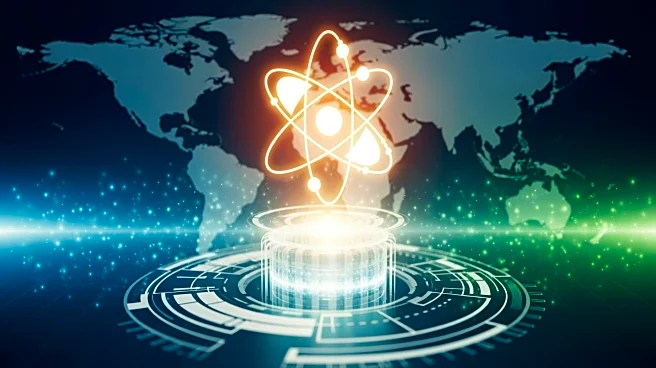What's Happening?
Iran is actively rebuilding its nuclear program, drawing lessons from past Israeli strikes. The Mossad's surveillance efforts on Tehran's nuclear facilities are becoming increasingly crucial. A billboard in Tehran displays illustrations of Iranian centrifuges
and portraits of nuclear scientists killed in Israeli strikes, highlighting the ongoing tensions. The International Atomic Energy Agency (IAEA) and other international bodies continue to monitor the situation closely.
Why It's Important?
The rebuilding of Iran's nuclear program has significant implications for regional stability and international relations. It could lead to heightened tensions between Iran and Israel, as well as with Western countries, particularly the United States. The situation may affect global oil markets and influence geopolitical alliances, with potential impacts on international security and diplomatic efforts to curb nuclear proliferation.
What's Next?
Iran's actions may prompt increased diplomatic efforts to resume nuclear negotiations. The international community, including the United States and Israel, may consider further sanctions or other measures to deter Iran's nuclear ambitions. The situation could lead to a reevaluation of security strategies in the Middle East, with potential military implications if tensions escalate further.
Beyond the Headlines
The rebuilding of Iran's nuclear program raises ethical and legal questions regarding nuclear proliferation and the balance of power in the Middle East. It may also influence cultural perceptions and narratives within Iran, as the government seeks to portray strength and resilience against external pressures.















